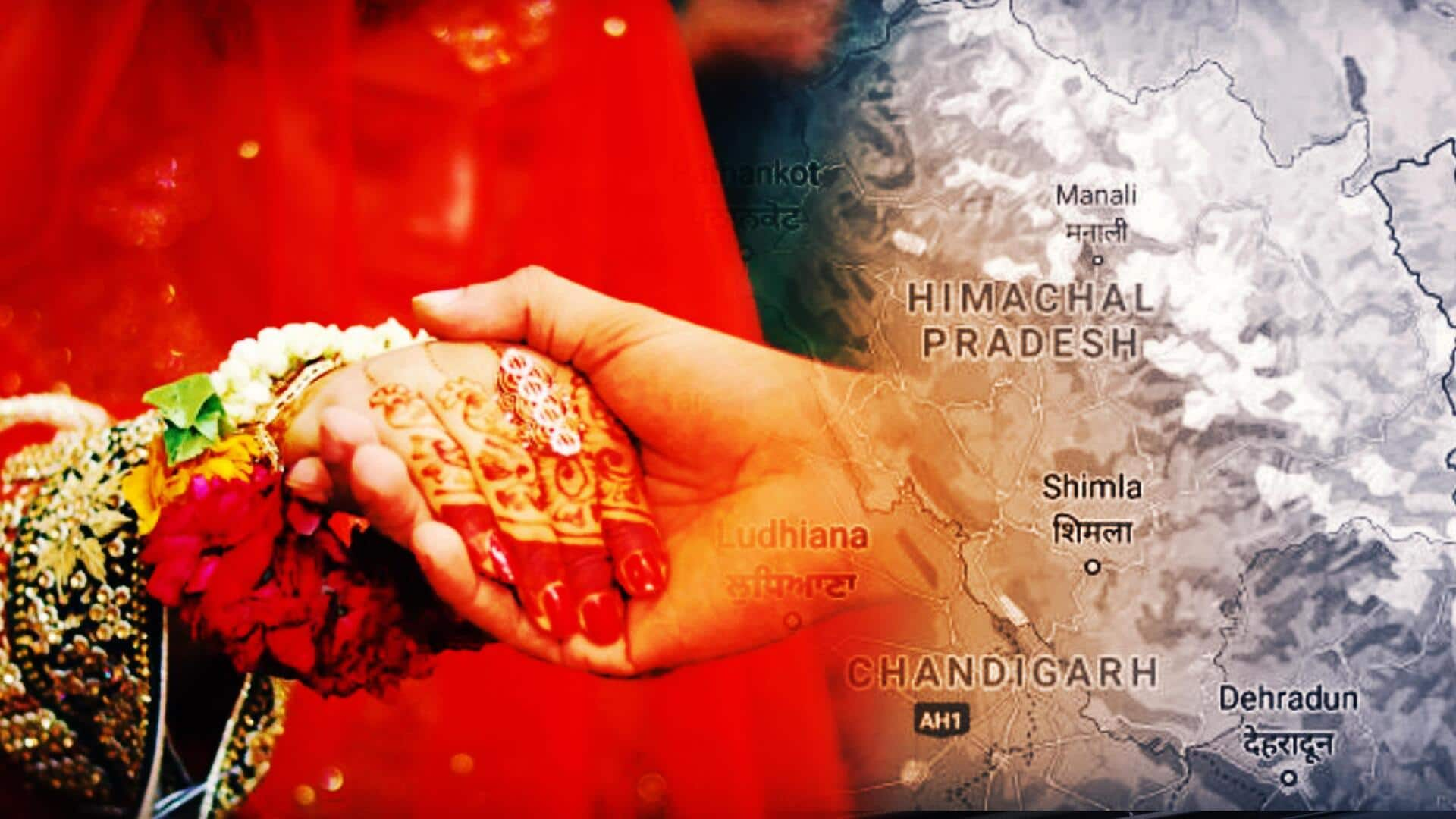
Himachal bill raises women's marriageable age to 21, what next?
What's the story
The Himachal Pradesh Assembly approved a Bill raising the legal marriage age for women from 18 to 21 years on Tuesday. The Prohibition of Child Marriage (Himachal Pradesh Amendment) Bill, 2024, was passed by a voice vote. This Bill modifies the Prohibition of Child Marriage (PCM) Act, initially enacted by Parliament in 2006. The key questions are: What changes does the Bill bring to the PCM Act, and how will these state-level amendments to a central law take effect?
Objective
Bill aims to provide opportunities for women
Dhani Ram Shandil, the Minister of Health, Social Justice, and Empowerment, presented the bill in the Assembly. He emphasized that increasing the minimum age of marriage for women is necessary to provide them with more opportunities. Shandil noted that early marriages often hinder girls' education and career progression. The bill also highlights how early marriage and motherhood can have a detrimental impact on women's health.
Age parity
Bill removes gender-based age distinction for marriage
The new legislation amends the Prohibition of Child Marriage Act's definition of a "child." Previously, the Act defined a "child" as a male under 21 years or a female under 18 years. The Himachal Pradesh bill removes this gender-based age distinction, defining a "child" as anyone who has not yet reached 21 years, regardless of gender.
Legal supremacy
Bill overrides conflicting laws and customs
The bill also modifies the definition of "child marriage" in the Prohibition of Child Marriage Act. It now includes a clause that gives it precedence over any other law, custom, or practice that contradicts or is inconsistent with it. This means that the new minimum age for marriage will apply to everyone in Himachal Pradesh, irrespective of their religious or cultural practices.
Annulment extension
Bill extends time for annulment petitions
The bill also extends the timeframe for filing a petition to annul a marriage. Previously, a party who was underage at the time of their marriage could file such a petition within two years of reaching adulthood. The new legislation extends this period to five years, allowing both women and men to file petitions before they turn 23 years old.
Procedure
How will the Bill's amendments come into force
The Concurrent List, under the Seventh Schedule of India's Constitution, allows both central and state governments to legislate on subjects like marriage, divorce, and child marriage. Entry 5 of the List includes matters related to personal laws. When a state Assembly passes a Bill, it goes to the Governor under Article 200 for assent. The Governor can approve, return it for reconsideration, or reserve it for the President, who can then assent, withhold assent, or direct reconsideration.
Approval
Himachal Bill needs President's approval
The Himachal Pradesh Bill raises the marriage age for women, differing from the PCM Act passed by Parliament. According to Article 254(1) of the Constitution, if a state law conflicts with a central law on a Concurrent List subject, the conflicting part is void. However, under Article 254(2), if the state law contradicts an existing central law, it must be reserved for the President's assent, per Article 201, to become valid.
UCC Bill
Similar process for Uttarakhand's UCC
Therefore, the Himachal Pradesh Bill needs the President's approval to take effect. A similar process occurred with Uttarakhand's Uniform Civil Code Bill, which aimed to standardize provisions on marriage, divorce, and other personal matters across the state. These subjects were traditionally regulated by personal laws enacted by Parliament, as well as the customs of individuals based on their religious or cultural identity. The Bill, passed by the state Assembly in February, became law after receiving President Murmu's assent in March.